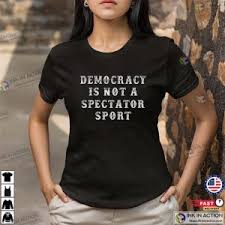To wreck, to wreck, to wreck
Did I build this ship to wreck?
Florence & the Machine
As Donald Trump, Elon Musk and the cabal of
plutocratic billionaires that the President calls his cabinet pursue their self-interested
agenda, they are telling Americans that they need to prepare to sacrifice and feel
economic pain for the good of society.
Why is it that the least advantaged
in our society are always the ones asked to sacrifice for the greater good?
Trump's speech to Congress foretold economic
pain for Americans. Supposedly,
tariffs, budget costs, layoffs and the elimination of the already decimated
social welfare net will be good for America in the long run. It will require sacrifice by farmers, laborers,
people of color, and anyone who buys products or receives services from the
government.
Perhaps sacrifice is occasionally
necessary. Yet it never seems that the rich are the ones who are asked to
sacrifice,
At one time the demand to ask the
poor and the middle class to sacrifice was called trickle-down economics under
the Reagan administration. Tax cuts for
the rich, coupled with a loosening of the regular regulatory system and cuts to
the social welfare system would eventually trickle down and benefit all
Americans.
Then the call for the poor to
sacrifice for the country was called free trade under the Clinton
administration. Yet again, the argument
was that by opening borders with free trade America would prosper, even though
some in manufacturing and among the poor, the working class, and the people of color
would have to sacrifice.
Then it was the demand under the
Obama administration that people lose their homes so that we could afford to
bail out the too big to fail banks.
The result of all those sacrifices
were to produce an America with a gap between the rich and poor greater than
we've seen in American history. It was to produce an America in where nearly
one out
of six children lived in poverty, where economic mobility has nearly
come to a halt, and the American dream of
homeownership has become something that only a few can hope for.
Many years ago, philosopher John
Rawls wrote his book A Theory
of Justice. He argued that disinterested individuals constructing the
rules of societal justice would agree to two principles. The first would be like liberty consistent with the same
liberty for everybody else. Two, what came to be known as the difference
principle, specified that inequalities should be treated as arbitrary unless
they work first to the advantage of the least advantaged person in our society.
Rawls’ book was a call for both
political liberty and a challenge regarding the economy and social welfare. The
challenge was to say inequalities were presumptively impermissible unless one
could show that they were first advantageous to those who were poor. Yet in the more than fifty years since his
book was published, social policy has gone the other way. It has gone not to
presuming inequalities are impermissible, and that the poor should not be to
ask to sacrifice first, but that instead the poor should be asked to sacrifice
ahead of the rich, ahead of the affluent, and that the inequalities in our
society are somehow reflective of some basic principles of justice.
Trump's declaration that there will
be pain for those who can least shoulder it is yet the latest manifestation of
a series of social policies over the last cent half century that have wrecked
the ship of American democracy. They are doing damage to the very framework of
what has come to knit our society together
Somehow it is the belief that making people's lives miserable will
motivate them to work harder, when in fact, making people more secure,
economically, socially and politically, is what motivates people to work harder
than what makes us all prosper.
In the end, Trump musk and his cabal
of billionaires have adopted a modern-day Marie Antoinette view of the world. When
Marie Antoinette was once told there was not enough bread to feed the French
masses, she remarked: “Let them eat cake.” Perhaps now the adage for Trump fittingly
would be: “Let them eat eggs.”






